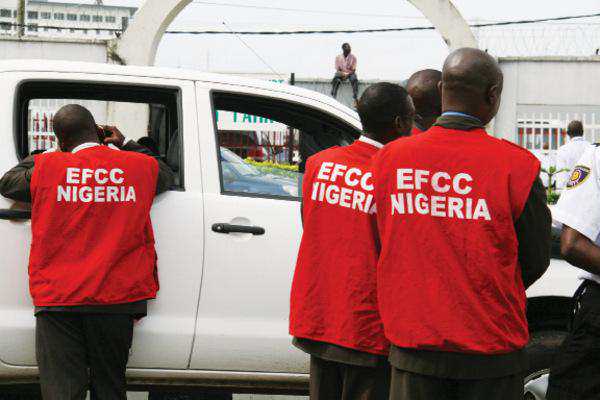The Economic and Financial Crimes Commission (EFCC) yesterday filed money laundering charges, among others, against Dr. Raymond Dokpesi, former National Security Adviser (NSA) Sambo Dasuki, former Sokoto State Governor Attahiru Bafarawa, former Minister of State for Finance Bashir Yuguda and former Director of Finance, Office of the National Security Adviser(ONSA), Shaibu Salisu.
The detained suspects were yesterday served copies of the charges with some of the suspects meeting last night with their counsel, an indication that they might be arraigned today or before the weekend.
In the suit, which is yet to be assigned to a judge, Dokpesi is slammed with six counts, according to court sources. The AIT/Ray Power chairman admitted collecting N2.1billion from the office of the NSA. The money, he said, is for media services. Dokpesi is charged along with his company – Daar Holdings and Investment Limited.
They are accused of violating the Money Laundering Act, the EFCC Act and the Public Procurement Act.
Dasuki, who is charged along with the others, is already standing trial before the Federal High Court, Abuja for alleged illegal possession of firearms and money laundering.
There were strong indications yesterday that the accounts of most of the suspects had been frozen.
According to an EFCC source, who spoke in confidence, filing the charges “is a demonstration of our commitment to the rule of law”.
He said the EFCC would not want to detain all the suspects for long “because they are overstretching our facilities”.
“Their fate will now be determined by the court. It is the court that will decide whether they should be granted bail or be remanded in prison custody,” the source added.
The investigation of the $2.1 billion arms deals will continue in spite of filing of charges, it was learnt.
Although the details of the charges were not released last night, it was learnt that the EFCC chose to beat most of the suspects to their game.
“These suspects were already plotting to go to a High Court to quash the detention warrant issued by a Chief Magistrate’s Court against them. We have to move faster to checkmate plans to stop their trial.”
When contacted last night, Mr. Ahmed Raji (SAN), who is one of the counsel to the former National Security Adviser, Mr. Sambo Dasuki said: “My client has been served with the charges preferred against him. I am now studying them with his team of lawyers in preparation for the arraignment.”
It was gathered that the charges against Dasuki and others border on misapplication and stealing of funds.
Most of the accounts of the high-profile suspects have been frozen by the EFCC. None of the suspects has access to their accounts. We have placed Post No Bill (PNB) on their accounts until the court takes a decision.
“Their international passports are also with us to restrict their movement to the country pending the time the court will decide as may be appropriate.”
Dokepsi, who is on bail from the EFCC, was last Friday ordered to be produced by Justice Gabriel Kolawole (also of the Federal High Court, Abuja).
The order followed an ex-parte application by Dokpesi, who claimed to have been unlawfully detained beyond 48 hours by the EFCC. The judge, who heard Dokpesi’s lawyer, Mike Ozekhome (SAN) in chambers, ordered the EFCC to produce Dokpesi before his court on the next hearing date of December 14.
Ozekhome, who told reporters what happened in the judge’s chambers, said the judge also ordered the EFCC to show cause why he should not grant Dokpesi’s prayer for unconditional or conditional bail.
Dokpesi hinged his prayers on the grounds that no formal charge had been brought against him, over 48 hours after his detention.
The applicant said he went to honour a verbal invitation from EFCC on December 1 and had been detained since then after subjecting him to hours of “unprepared interrogation”.
He argued that the offences alleged against him “are ordinarily bailable”. He promised not to jump bail and not to interfere with witnesses or the course of justice if any formal charge is filed against him.
Dokpesi said with his social status, the court could grant him bail on liberal terms. Or on self recognisance as he has no criminal antecedents or record. He promised to attend court if eventually he is formally arraigned.

